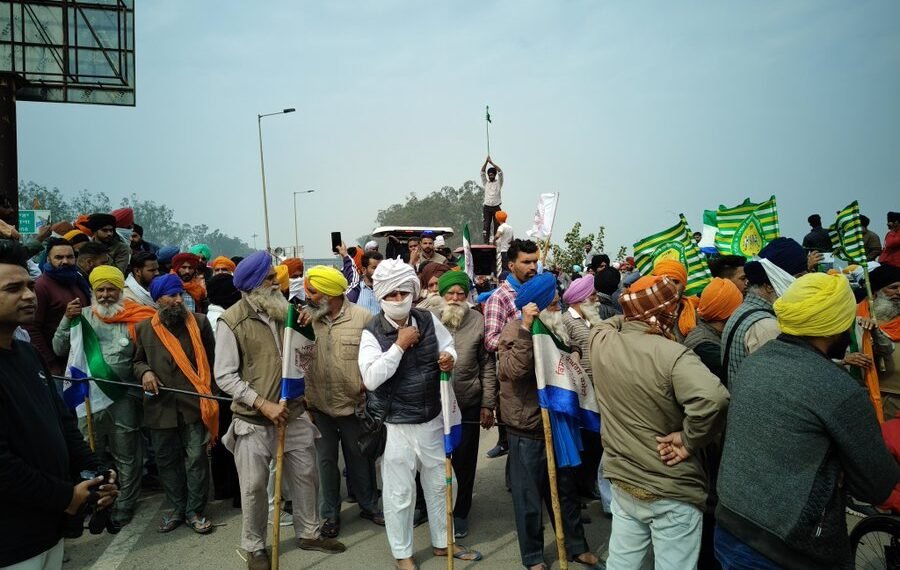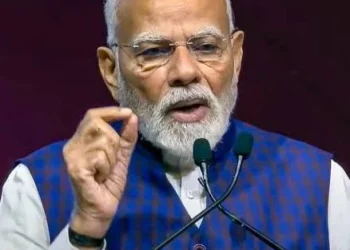The ongoing standoff between Punjab farmers and the central government escalated Monday as farmer leaders rejected the latest offer on guaranteeing floor prices for select crops. They announced plans to resume march to the national capital on Wednesday, prompting police in Haryana and Delhi to seal key borders in anticipation.
Why Farmers Rejected Government’s Offer?
The decision to reject the government’s offer came after farmer representatives from Punjab engaged in a fourth round of talks with Union ministers in Chandigarh. The offer presented during the meeting proposed a new mechanism involving five-year contracts with cooperative societies for procuring pulses, maize, and cotton at minimum support prices (MSP).
VIDEO | Here's what SKM (Non-Political) leader Jagjit Singh Dallewal said on farmer unions' decision to reject Centre's proposal of procuring pulses, maize, cotton at MSP for 5 years.
"The reason for not accepting government's proposal (on MSP guarantee) is that they said… pic.twitter.com/EIdplo8Zmm
— Press Trust of India (@PTI_News) February 19, 2024
However, upon returning to the Shambhu border between Punjab and Haryana, where thousands of farmers have halted their journey towards Delhi since February 13, leaders of the two prominent farmer unions, Punjab Kisan Mazdoor Sangharsh Committee (KSMC) and Bharatiya Kisan Union (Ekta Sidhupur), announced the rejection of the offer.
Farmer Unions To Intensify Protest
Jagjit Singh Dallewal, head of BKU (Ekta Sidhupur), stated, “After analyzing the government’s proposal, we find it lacking in favor of farmers. We reject it.” Sarwan Singh Pandher, the general secretary of KSMC, emphasized the unions’ steadfast demand for a legal guarantee of MSP on all 23 crops. He expressed dissatisfaction with the government’s proposal to provide MSP for only five years on selected crops, likening it to a step towards contract farming, which they deem unacceptable.
The agitation led by these two farmer outfits encompasses various demands, including a law to ensure MSP for 23 crops, loan waivers, reinstating a 2013 land acquisition law, and providing jobs for families affected by previous farm agitations. After rejecting the government’s proposal, the farmers’ unions announced they would march towards Delhi with more farmers joining the movement ahead.
”We will move towards Delhi on February 21 at 11am,” added Sarwan Singh Pandher, the general secretary of KSMC.
The Samyukta Kisan Morcha, a coalition of farmer unions that spearheaded protests against farm laws in 2020-2021, echoed the rejection of the government’s proposal. They emphasized their insistence on the ‘C-2 plus 50%’ formula for MSP, as the Swaminathan Commission report recommended.
Despite the government’s efforts to address farmer concerns, including the proposal to enter into contracts with cooperative societies to procure specific crops at MSP for five years, farmer leaders remain skeptical. Gurnam Singh Charuni, leader of Bharatiya Kisan Union (Charuni), urged the government to expand the MSP system to include oilseeds and bajra, highlighting their importance in agricultural procurement.
The escalating tensions between farmers and the government underscore the deep-rooted issues at the heart of the agrarian crisis in India. As farmer protests persist, the government faces mounting pressure to address their grievances and find a mutually acceptable resolution to the impasse.














